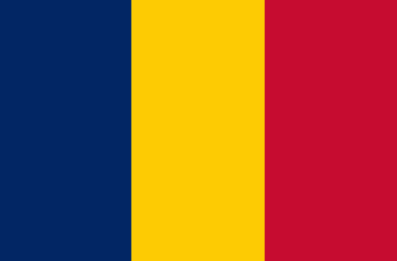Chad
Chad


The history of Chad, a landlocked country in Central Africa, is complicated by factors such as its geography, its many ethnic groupings, and its interactions with colonial powers. The history of Chad is a monument to the strength and diversity of its people, from ancient civilizations through post-independence conflicts. We’ll explore Chad’s fascinating past here, focusing on its most formative moments and the factors that ultimately determined its course.
Empires and civilizations of antiquity
Evidence of human presence in what is now Chad dates back thousands of years into antiquity. Sao and Kanem-Bornu dynasties, which thrived between the ninth and nineteenth centuries, were based in this area. These empires facilitated trade and cultural interchange, and their enduring legacy include stunning works of architecture and the arts.
Resistance and Colonialism
European colonial powers established themselves in Chad in the nineteenth century. French rule was established, and the area became part of French Equatorial Africa. Several different peoples fought back against colonial power, most famously under Rabah Zubayr, who opposed French expansion and temporarily ruled over his own territory.
Freedom and Post-Colonial Struggles
On August 11, 1960, Chad became an independent nation under the leadership of François Tombalbaye. Politico-military instability, internal strife, and regional tensions all plagued the years after independence. Chad’s history is marked by many armed uprisings, including those led by Hissène Habré and Idriss Déby.
Ancient civilizations, colonial interactions, and post-independence difficulties all weave together in Chad’s complex history. The course that this country has taken has been influenced by its many different ethnic groups and their fights for independence. Chad’s people are resilient, and the country’s lessons from its complicated past will help it succeed in the future.
The history of Chad, a landlocked country in Central Africa, has been impacted by a number of different social and cultural forces. Like many other African countries, Chad was profoundly impacted by the system of slavery. In this essay, we will examine the complex history of slavery in Chad, from its inception through its societal effects and final eradication.
Slavery’s African Roots in Chad
Slavery persisted in Chad for many decades and was ingrained in the culture of the country. Slavery of captives is an age-old tradition that has its roots in wars between different tribes. Slaves in Chad were used for many purposes, including farming, housework, and even military duty.
The Slave Trade between the Arab World and Europe
Slavery was pervasive in Chad, and it was mostly due to the Arab slave trade. Slaves were captured by Arab traders and taken over the Sahara Desert to sell in North Africa and the Middle East. The colonial era saw the arrival of European powers, adding another layer of complexity. Even as some colonial rulers worked to stamp out slavery, others used it to consolidate power and expand their economies.
The Chadian people were exploited via forced labor and other means throughout the colonial era. Until Chad won its independence from France in 1960, slavery remained, albeit in a modified form. An increased understanding of human rights and a yearning for social justice fueled a resurgence of anti-slavery activism in the post-colonial era.
Slavery’s sad legacy is one that Chad has tried diligently to shed. The practice of slavery has far-reaching effects, dividing societies and degrading countless people.
عند ـ ولد ـ بيت ـ أبيض ـ أم ـ واحد ـ أخضر ـ أنا ـ تم ـ ماء ـ باب ـ قديم ـ كبير ـ قليل ـ صغير ـ نار ـ سماء ـ شمس ـ هواء ـ يد ـ عين ـ أخ ـ أخت ـ قلب ـ رأس ـ شهر ـ يوم ـ مساء ـ صباح ـ دقيقة ـ ساعة ـ بلد ـ سكان ـ عاصمة ـ شارع ـ مدينة ـ قرية ـ مطار ـ محطة ـ حديقة ـ جبل ـ بحر ـ نهر ـ صحراء ـ غابة ـ نبات ـ زهرة ـ شجرة ـ ثمرة ـ حيوان ـ طائر ـ سمك ـ فراشة ـ ذبابة ـ قطة ـ كلب ـ حصان ـ بقرة ـ طائرة ـ سفينة ـ قطار ـ سيارة ـ دراجة ـ بنك ـ مدرسة ـ مستشفى ـ سوق ـ مطعم ـ مقهى ـ فندق ـ سفارة ـ جامعة ـ كنيسة ـ مسجد ـ برج ـ جسر ـ نادي ـ حكومة ـ قانون ـ جيش ـ سلام ـ حرب ـ طبيب ـ مهندس ـ محامي ـ معلم ـ طالب ـ كتاب ـ مجلة ـ صحيفة ـ قصة ـ شعر ـ رواية ـ مسرح ـ فن ـ فيلم ـ موسيقى ـ أغنية ـ صورة ـ فنان ـ رقص ـ طبق ـ ماء ـ خبز ـ لحم ـ أرز ـ حليب ـ شاي ـ قهوة ـ سكر ـ ملح ـ زيت ـ سمك ـ فاكهة ـ خضار ـ سلطة ـ حلوى ـ ش













You must be logged in to post a comment Login